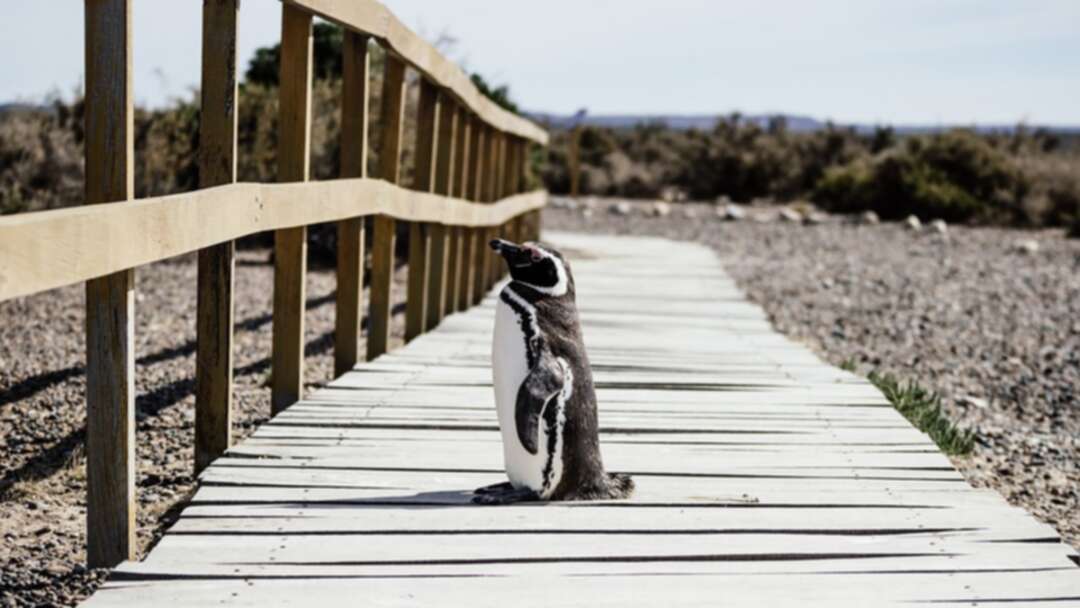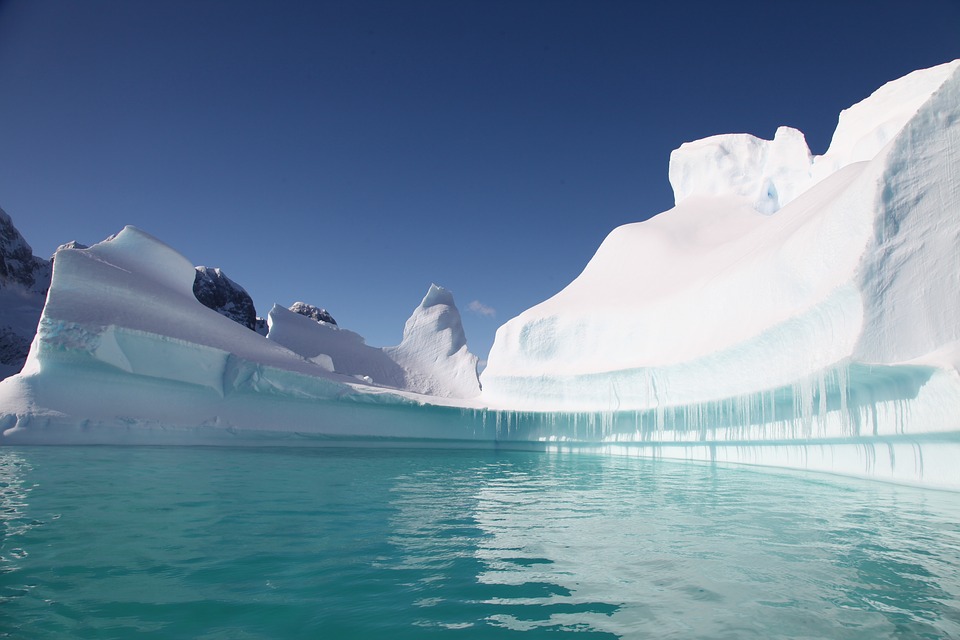-
Antarctic penguin accidentally crosses 3000 km from its habitat to New Zealand shores

The BBC reported, a penguin has found itself on the shores of New Zealand, at least 3,000 kilometres (1,864 miles) away from its natural habitat of Antarctica.
The Adélie penguin, who has now been affectionately named Pingu by locals, was found looking lost on the coast.
Harry Singh, the local resident who found him, said he thought he was a "soft toy" at first.
It is only the third recorded incident of an Adélie penguin being found on New Zealand's coast.
Mr Singh and his wife first came across the penguin when they were out walking after a long day of work on the beach at Birdlings Flat, a settlement south of the city of Christchurch.

Mr Singh told the BBC: "First I thought it (was) a soft toy, suddenly the penguin moved his head , so I realized it was real.
Read more: China undertake construction activities in areas it illegally occupied
Footage of the penguin posted on Mr Singh's Facebook page showed the penguin appearing lost and alone.
"It did not move for one hour... and
Mr Singh proceeded to call penguin rescuers as he was concerned that the penguin was not getting into the water, thereby making it a potential target for other predatory animals roaming the beach.
He said: "We did not want it to end up in a dog's or cat's stomach."
He eventually got through to Thomas Stracke, who has been rehabilitating penguins on New Zealand's South Island for about 10 years.
Read more: Virus responsible for Covid-19 detected in a pet dog in the UK
Mr Stracke was shocked to find that the penguin was an Adélie penguin - a species that lives exclusively on the Antarctic peninsula. Mr Stracke, along with a veterinarian, rescued the penguin that same evening.
Underweight and dehydrated
Blood tests performed on Pingu showed that it was slightly underweight and dehydrated. It has since been given fluids and fed via a feeding tube.
The bird will eventually be released onto a safe beach on Banks Peninsula, which is free of dogs.
The discovery is only the third in history that an Adélie penguin has been found on New Zealand's coasts, following two incidents in 1993 and 1962.
Adélie spottings remain rare in New Zealand, but if more of them appear in the future, it could be a worrying sign, say experts.
Read more: YouTube announces count to dislike button will no longer be visible to the viewers
"I think if we started getting annual arrivals of Adélie penguins, we'd go actually, something's changed in the ocean that we need to understand," Otago University zoology professor Philip Seddon told news site The Guardian.
"More studies will give us more understanding where penguins go, what they do, what the population trends are like - they're going to tell us something about the health of that marine ecosystem in general."
Source: BBC
You May Also Like
Popular Posts
Caricature
BENEFIT Sponsors BuildHer...
- April 23, 2025
BENEFIT, the Kingdom’s innovator and leading company in Fintech and electronic financial transactions service, has sponsored the BuildHer CityHack 2025 Hackathon, a two-day event spearheaded by the College of Engineering and Technology at the Royal University for Women (RUW).
Aimed at secondary school students, the event brought together a distinguished group of academic professionals and technology experts to mentor and inspire young participants.
More than 100 high school students from across the Kingdom of Bahrain took part in the hackathon, which featured an intensive programme of training workshops and hands-on sessions. These activities were tailored to enhance participants’ critical thinking, collaborative problem-solving, and team-building capabilities, while also encouraging the development of practical and sustainable solutions to contemporary challenges using modern technological tools.
BENEFIT’s Chief Executive Mr. Abdulwahed AlJanahi, commented: “Our support for this educational hackathon reflects our long-term strategic vision to nurture the talents of emerging national youth and empower the next generation of accomplished female leaders in technology. By fostering creativity and innovation, we aim to contribute meaningfully to Bahrain’s comprehensive development goals and align with the aspirations outlined in the Kingdom’s Vision 2030—an ambition in which BENEFIT plays a central role.”
Professor Riyadh Yousif Hamzah, President of the Royal University for Women, commented: “This initiative reflects our commitment to advancing women in STEM fields. We're cultivating a generation of creative, solution-driven female leaders who will drive national development. Our partnership with BENEFIT exemplifies the powerful synergy between academia and private sector in supporting educational innovation.”
Hanan Abdulla Hasan, Senior Manager, PR & Communication at BENEFIT, said: “We are honoured to collaborate with RUW in supporting this remarkable technology-focused event. It highlights our commitment to social responsibility, and our ongoing efforts to enhance the digital and innovation capabilities of young Bahraini women and foster their ability to harness technological tools in the service of a smarter, more sustainable future.”
For his part, Dr. Humam ElAgha, Acting Dean of the College of Engineering and Technology at the University, said: “BuildHer CityHack 2025 embodies our hands-on approach to education. By tackling real-world problems through creative thinking and sustainable solutions, we're preparing women to thrive in the knowledge economy – a cornerstone of the University's vision.”
opinion
Report
ads
Newsletter
Subscribe to our mailing list to get the new updates!





















